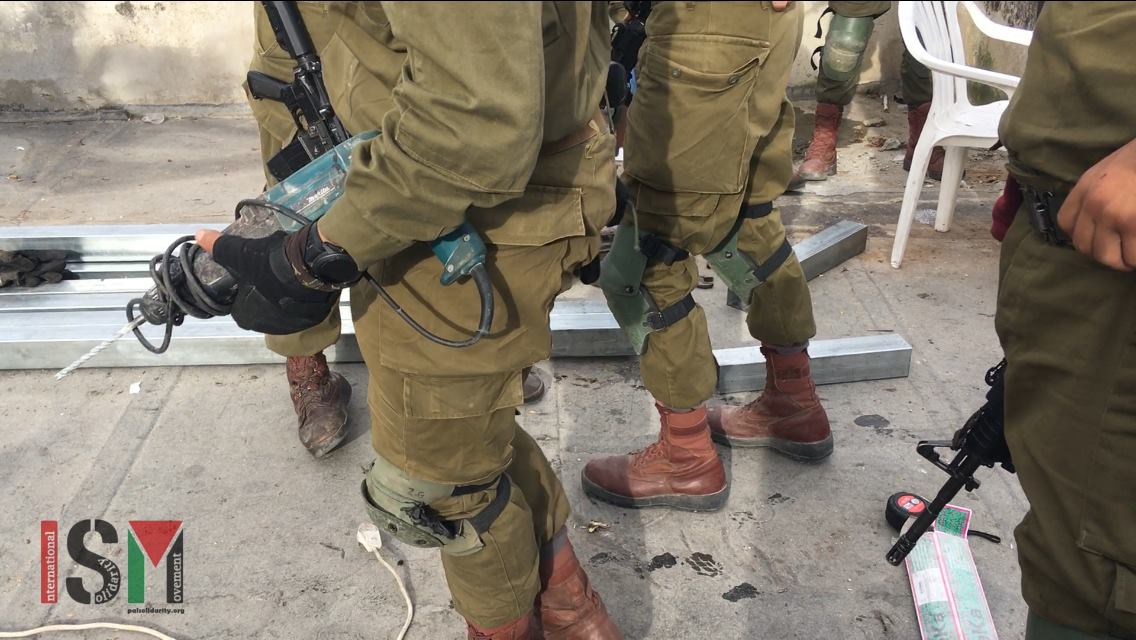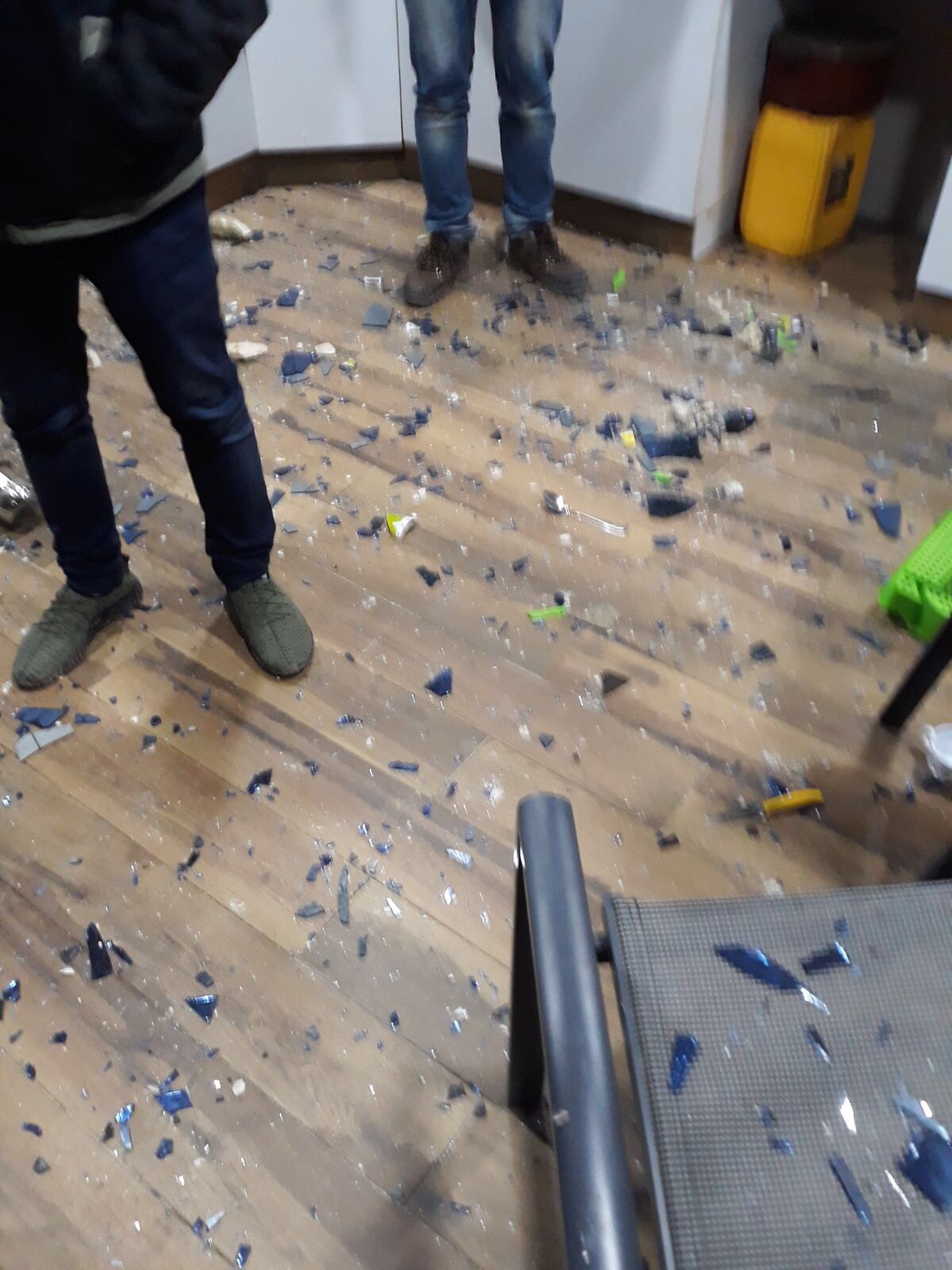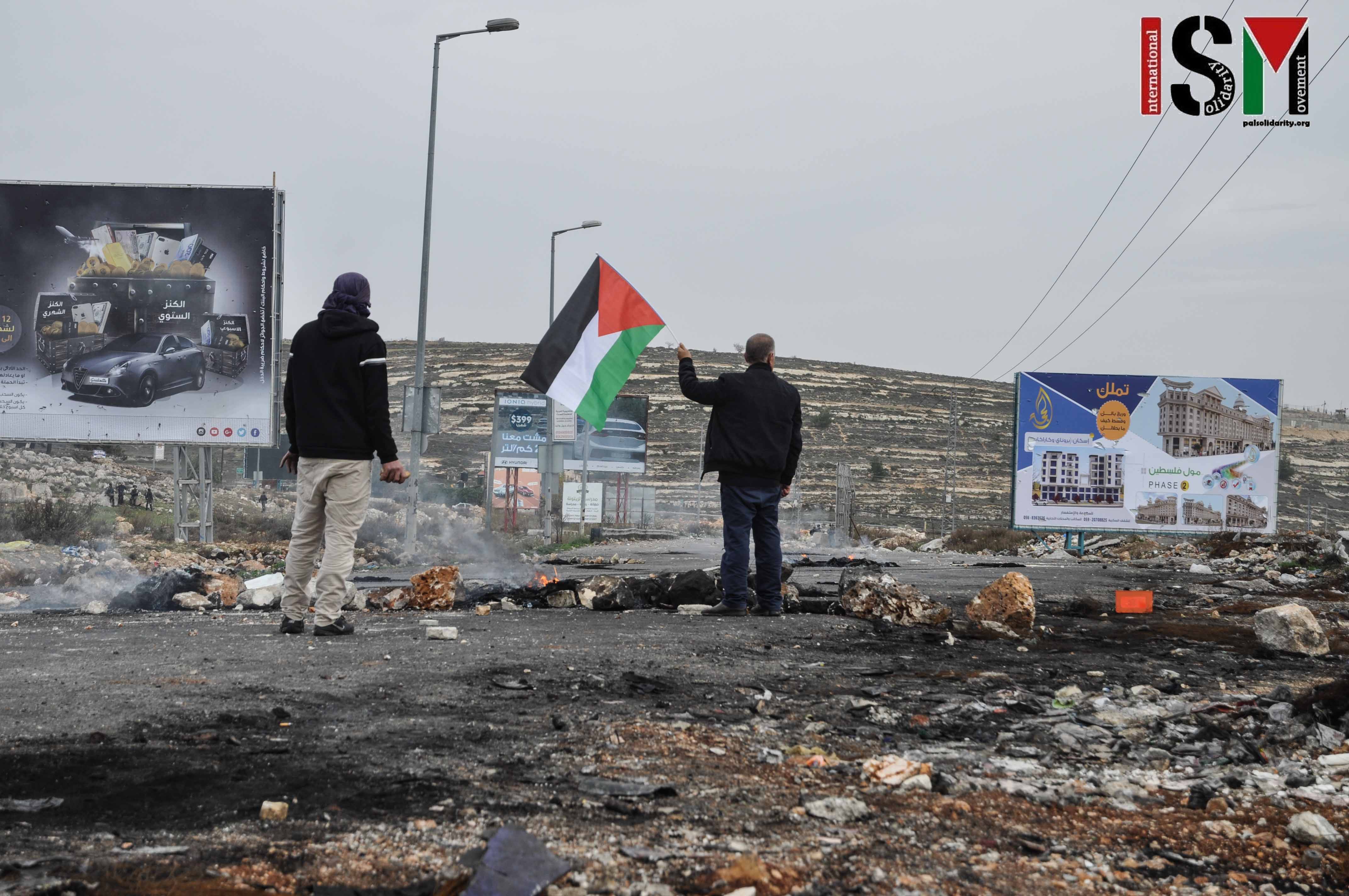Tag: Settlers
-
Israeli soldiers order Palestinian family to halt approved rooftop construction
18th February 2018 | International Solidarity Movement, Khalil team | Occupied Palestine Last weekend, the Sharabati family that lives on Shuada street in Al Khalil were hard at work constructing a metal frame for a roof covering on top of their house which is overlooked by an illegal settlement. Settlers arrived at a gate adjacent…
-
Palestinian villages attacked – yet resisting illegal outposts
12th January 2018 | International Solidarity Movement, Nablus team | Occupied Palestine Today in Kfar Qaddum the protesters, marching towards the road closed off due to the illegal settlement of Kadumim, were suppressed by Israeli military. Protesters were met with teargas and rubber coated steel bullets. Luckily there were no serious injuries. Three days ago…
-
Friday Demonstration at Beit’El
Some impressions of last friday demonstration (Dec 29) at Beit’El where an illegal settlement has been set up: The settlement of Beit’El has been built illegally in the year 1977. Growing in its population it counts more than 5600 settlers. By taking their land Palestinians do not have full access to water supplies, farming land…



